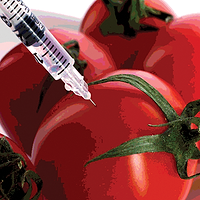Ready or Not, FDA Must Promulgate Rule on Intentional Adulteration of Food

The final schedule for promulgation of Food Safety Modernization Act (FSMA) required-regulations appears set. On August 13, 2013, the U.S. District Court for the Northern District of California ordered the U.S. Food and Drug Administration (FDA) to issue by June 30, 2015, the intentional adulteration regulation even though FDA requested until at least the second half of 2017 in which to do so. The Court denied FDA’s request for a stay of that order pending appeal.
The schedule for completion of the seven rules that Congress deems to be the foundation of, and framework for, FSMA currently is as follows (and will remain so absent an FDA appeal and an appellate court ruling in the FDA’s favor):
Preventative controls for human food [FSMA § 103(a) and 103(c)]
1/16/13 – draft rule published
11/15/13 – deadline for public comments
6/30/15 – deadline for publication of final rule
Produce safety standards [FSMA § 105(a)]
1/16/13 – draft rule published
11/15/13 – deadline for public comments
6/30/15 – deadline for publication of final rule
Foreign supplier verification program [FSMA § 301(a)]
7/29/13 – draft rule published
11/26/13 – deadline for public comments
6/30/15 – deadline for publication of final rule
Accreditation of third party auditors (FSMA § 307)
7/29/13 – draft rule published
11/26/13 – deadline for public comments
6/30/15 – deadline for publication of final rule
Preventive controls for animal food [FSMA § 103(a) and 103(c)]
11/30/13 – deadline for draft rule
3/1/14 – deadline for public comments
6/30/15 – deadline for publication of final rule
Sanitary transport of food and feed (FSMA § 111)
1/31/14 – deadline for draft rule
5/31/14 – deadline for public comments
6/30/15 – deadline for publication of final rule
Intentional adulteration [FSMA § 106(b)]
11/30/13 – deadline for draft rule
3/1/14 – deadline for public comments
6/30/15 – deadline for publication of final rule
This begs a fundamental question. Why has a court been tasked with setting the deadline for publication of the intentional adulteration and other regulations that implement FSMA? After all, Congress included as part of FSMA specific deadlines for promulgating regulations addressing the seven food safety concerns identified above. But FDA missed each deadline, pointing to complexities underlying formulation of those rules as the reason for delay.
Frustrated by what they perceived as dawdling, in August 2012 the Centers for Food Safety and for Environmental Health sued FDA in Federal Court, asserting that FDA violated FSMA and requesting that the Federal Court do what FDA would not—set certain rule promulgation deadlines. The plaintiffs claimed that FDA’s delay continues to put millions of lives at risk from contracting foodborne illnesses.
In April 2013, the Federal Court sided with the nonprofits, ruling that FDA had violated FSMA. Nevertheless recognizing the magnitude of the task that Congress set for FDA and that efforts to ensure food safety might be thwarted were the Court to arbitrarily set deadlines by which FDA must issue the regulations, the Court directed the parties to confer and agree on a schedule by which FDA would complete the regulations.
Both FDA and the plaintiffs were not able to see eye-to-eye on a schedule. FDA proposed target time frames it would endeavor to meet, subject to caveats that would allow it to extend target time frames or re-open rules published. Arguing that FDA only offered illusory targets, the Plaintiffs requested that the Court set May 1, 2014, as the date by which FDA would draft proposed rules, seek and analyze public comments and publish final FSMA rules.
The parties placed the Court in a position that, apparently, the Court had hoped to avoid. Even though just 2 months earlier, the Court noted that any schedule the Court were to select “will necessarily be arbitrary,” on June 21, 2013, the Court set on the following deadlines draft rules, public comment and final rule publication:
November 30, 2013, by which proposed FSMA regulations must issue for comment;
March 31, 2014, by which public comments must be submitted; and
June 30, 2015, by which final rules must publish.
The Court admonished FDA for failing to properly respond to the Court’s directive to propose firm deadlines, but found overly aggressive the May 2014 deadline plaintiffs recommended in light of FDA’s showing of the complex nature of FSMA rule preparation, including public comment.
Not ready to concede to the Court-imposed timing, FDA pushed back again, seeking additional time in which to draft, seek and analyze comments on and finally publish the sanitary transport and intentional adulteration rules. FDA targeted the second half of 2015 and the second half of 2017, respectively, to issue a draft and final version of the intentional adulteration rule. With respect to the sanitary transportation regulation, FDA only sought an extension of the deadline in which to publish a draft of the rule. FDA offered several reasons for requesting additional time, including limited resources that FDA dedicated to drafting the preventative control, produce safety, foreign supplier and auditor accreditation rules first because FDA believes those rules are foundational for other rules and offer the most public health benefits. In addition, FDA noted that it has substantial additional investigation to undertake in order to develop appropriate measures that are carefully tailored to the entire range of food supply vulnerabilities.
The plaintiffs pushed back, arguing that FDA’s attempt to exempt the intentional adulteration and sanitary food transport rules from the Court’s injunction lacked any proper legal or factual basis and must be denied. Nevertheless, the plaintiffs acquiesced in FDA’s request with respect to the sanitary transportation rule, provided FDA meet the Court-ordered deadline for publication of a final rule.
On August 13, 2013, the Court denied FDA’s motion to reconsider. It found that FDA did not meet the requisite standards for amending the Court’s June 21 judgment. The Court acknowledged its “sympathy” for the FDA’s position, but opined that the dispute here is be between FDA and Congress (August 13 Order at pp. 6–7). Ultimately, the Court notes that it “is unwilling to grant extension after extension, or to permit FDA to continually delay publication of this [intentional adulteration] rule, in the face of the clear Congressional directive that this be a closed-end process” (Id. at p. 7).
Will FDA take up its plea for more time with Congress? That remains a possibility, albeit impractical in light of the looming deadlines the Court imposed. In the meantime, food companies continue to have an important opportunity to shape the very rules that will govern their operations and impact their success. Information on the proposed rules and the process by which to submit written comments can be found on the FDA’s website at www.fda.gov/Food/GuidanceRegulation/FSMA/ucm261689.htm.
John T. Shapiro is partner and member of the Food Industry Team at Freeborn & Peters LLP (Chicago).
Looking for a reprint of this article?
From high-res PDFs to custom plaques, order your copy today!






